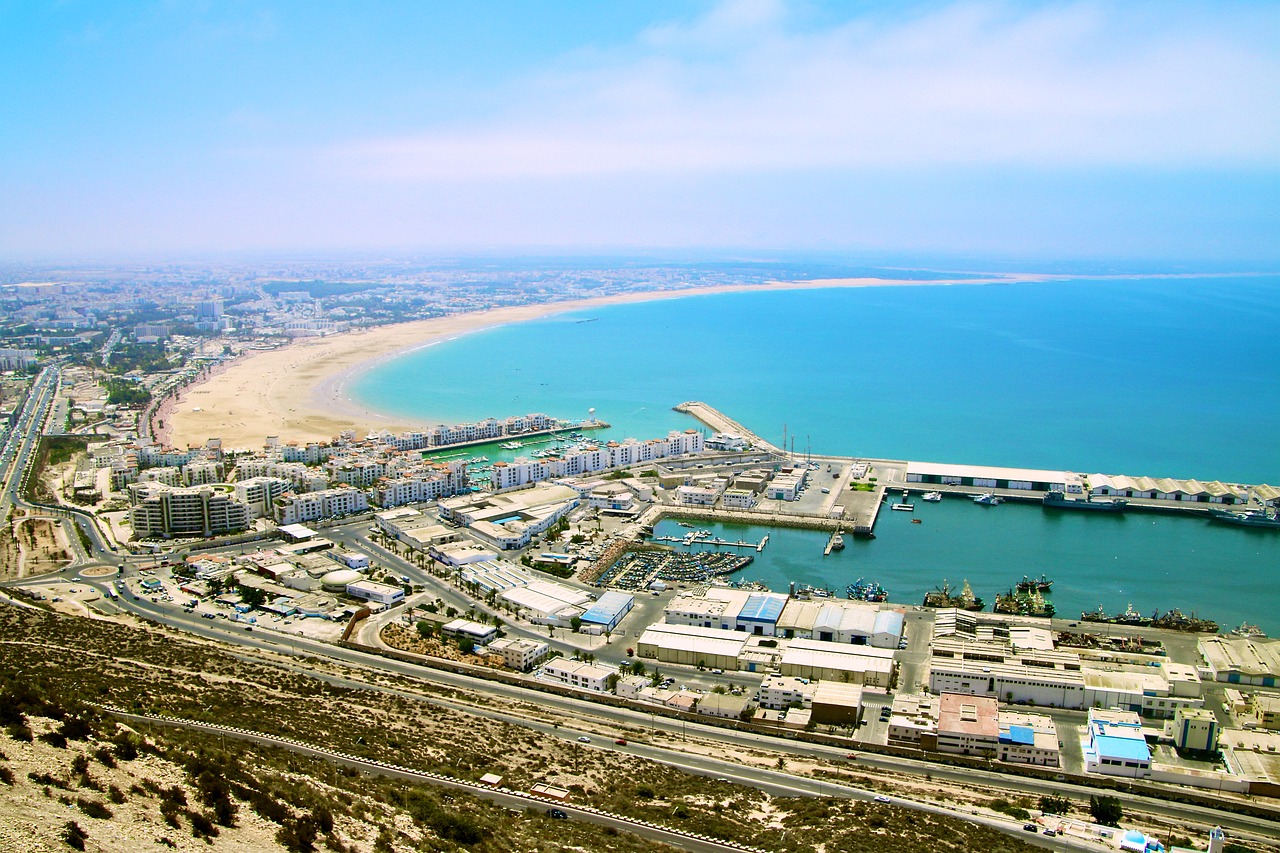Africa
The Transitec and Setec Consortium Wins the Agadir Mobility Plan Contract
The interest in mobility in the Agadir agglomeration is not new. It is the result of work already carried out over several years through strategic studies aimed at mobility planning, in particular the completion in 2013 of feasibility studies for high service level bus lines (BHNS), their update in 2016, and the development in 2015 of the Greater Agadir Urban Travel Plan (PDU).

The Sustainable Urban Mobility Plan (PMUD) and the Traffic and Parking Plans (PDCS) will require an investment of $1.2 million (11.9 MDH). They will be carried out by the consortium composed of the Swiss engineering firm Transitec, the French firm Setec, and their Moroccan subsidiaries.
The face of urban traffic in the Agadir conurbation will be reshaped over the next 13 months. The region will be equipped with a sustainable urban mobility plan (PMUD) and traffic and parking plans (PDCS) for a total amount of $1.2 million (11.9 million dirhams). The aim is to take into account the new mobility conditions in the Greater Agadir area.
Read more on the subject and find the latest economic news of the day with the Born2Invest mobile app.
Ten years of planning in Agadir
The study that will be conducted in this sense will include the identification of issues and the definition of the mobility strategy and scenarios. In addition, an action plan will be drawn up, as well as documents relating to the PMUD and the PDCS.
The interest in mobility in the Agadir agglomeration is not new. It is the result of work already carried out over several years through strategic studies aimed at mobility planning, in particular the completion in 2013 of feasibility studies for high service level bus lines (BHNS), their update in 2016, and the development in 2015 of the Greater Agadir Urban Travel Plan (PDU). In 2021, the traffic plan of Agadir was completed, in addition to the study of restructuring the public transport network in 2022.
At the same time, the territory of Greater Agadir, which has more than one million inhabitants, has been covered by other urban and territorial planning documents, including the regional land use plan (SRAT), the master plan for development and urban planning (SDAU), the regional development program (PDR) and other development plans (PA). The duration of this strategy is ten years in order to cover a sufficiently long period of time to allow for the realization of the actions that will have been proposed.
Two committees to oversee the study
Three perimeters have been established for the development of the MUDP. The primary purpose of this plan is to propose measures that generate sustainable urban mobility by showing how the action program is likely to curb the current trend based on mobility dominated by the private car (one of the main causes of greenhouse gas emissions).
In addition, three work horizons have been identified: the long-term (2040), the medium-term (2035), and the short-term (2030). Regarding the governance of the study, two committees will be set up to oversee it, namely the steering committee (COPIL) and the technical committee that will monitor and evaluate the progress of the studies. The preparation of the PMUD and the PDCS has been entrusted to a consortium consisting of the Swiss consultancy Transitec, the French consultancy Setec and their Moroccan subsidiaries.
The Greater Agadir Intercommunal Cooperation Establishment (ECI), as the contracting authority, launched these plans through its executive arm, the Greater Agadir Local Development Company for Urban Mobility and Travel. These plans will be a reference base for operational planning for all policy decisions and will also serve to define a shared vision for the organization of the movement of people and goods, but also traffic and parking in the region.
__
(Featured image by Mhamediyoussef via Pixabay)
DISCLAIMER: This article was written by a third party contributor and does not reflect the opinion of Born2Invest, its management, staff or its associates. Please review our disclaimer for more information.
This article may include forward-looking statements. These forward-looking statements generally are identified by the words “believe,” “project,” “estimate,” “become,” “plan,” “will,” and similar expressions. These forward-looking statements involve known and unknown risks as well as uncertainties, including those discussed in the following cautionary statements and elsewhere in this article and on this site. Although the Company may believe that its expectations are based on reasonable assumptions, the actual results that the Company may achieve may differ materially from any forward-looking statements, which reflect the opinions of the management of the Company only as of the date hereof. Additionally, please make sure to read these important disclosures.
First published in LES ECO.ma, a third-party contributor translated and adapted the article from the original. In case of discrepancy, the original will prevail.
Although we made reasonable efforts to provide accurate translations, some parts may be incorrect. Born2Invest assumes no responsibility for errors, omissions or ambiguities in the translations provided on this website. Any person or entity relying on translated content does so at their own risk. Born2Invest is not responsible for losses caused by such reliance on the accuracy or reliability of translated information. If you wish to report an error or inaccuracy in the translation, we encourage you to contact us.

-

 Markets2 weeks ago
Markets2 weeks agoSilver Dips Sharply, While Gold Gains Amid Mixed Stock Market
-

 Africa21 hours ago
Africa21 hours agoMorocco’s Tax Reforms Show Tangible Results
-

 Africa1 week ago
Africa1 week agoTunisia Holds Interest Rate as Inflation Eases, Debate Grows
-

 Crypto2 weeks ago
Crypto2 weeks agoEthereum’s Growing Capacity Puts Pressure on Layer 2 Platforms












